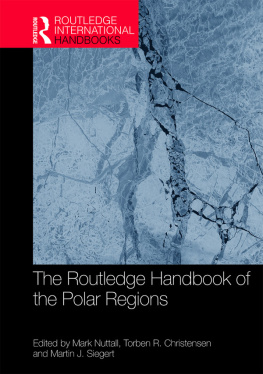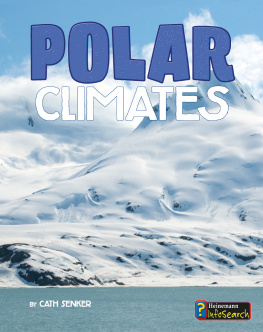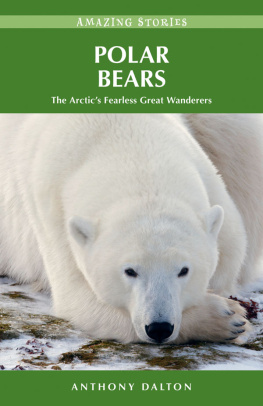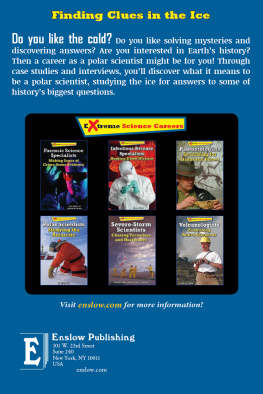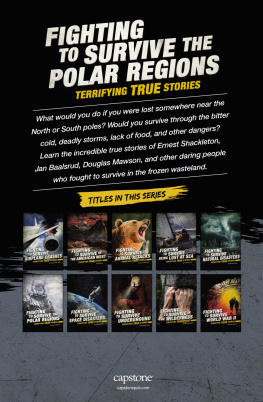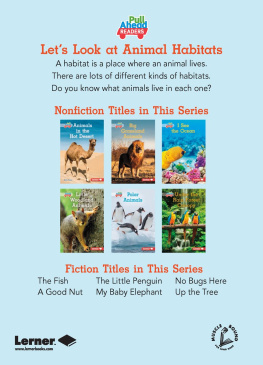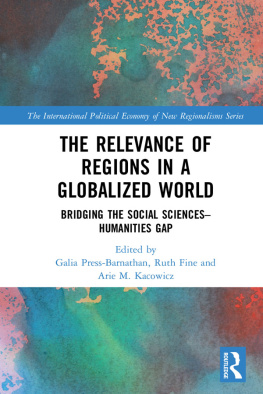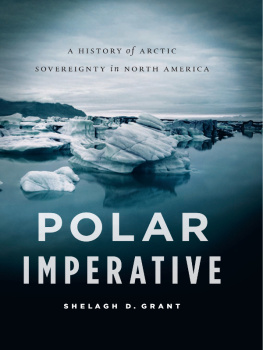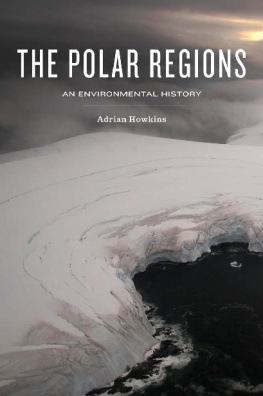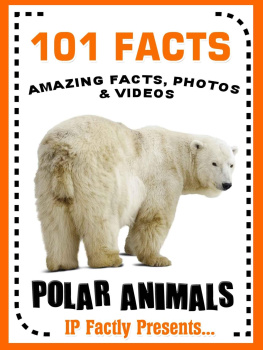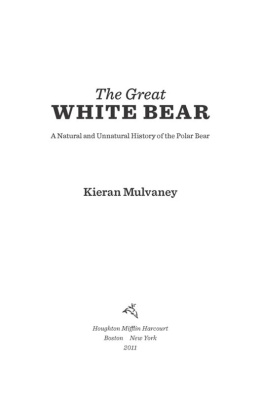
The Routledge Handbook of the Polar Regions
The Routledge Handbook of the Polar Regions is an authoritative guide to the Arctic and the Antarctic through an exploration of key areas of research in the physical and natural sciences and the social sciences and humanities. It presents 38 new and original contributions from leading figures and voices in polar research, policy and practice, as well as work from emerging scholars.
This handbook aims to approach and understand the Polar Regions as places that are at the forefront of global conversations about some of the most pressing contemporary issues and research questions of our age. The volume provides a discussion of the similarities and differences between the two regions to help deepen understanding and knowledge. Major themes and issues are integrated in the comprehensive introduction chapter by the editors, who are top researchers in their respective fields. The contributions show how polar researchers engage with contemporary debates and use interdisciplinary and multidisciplinary approaches to address new developments as well as map out exciting trajectories for future work in the Arctic and the Antarctic.
The handbook provides an easy access to key items of scholarly literature and material otherwise inaccessible or scattered throughout a variety of specialist journals and books. A unique one-stop research resource for researchers and policymakers with an interest in the Arctic and Antarctic, it is also a comprehensive reference work for graduate and advanced undergraduate students.
Mark Nuttall is Professor and Henry Marshall Tory Chair of Anthropology at the University of Alberta, Canada.
Torben R. Christensen is Professor of Arctic Biogeochemistry at Aarhus University, Denmark.
Martin J. Siegert is Professor of Geosciences at Imperial College London, UK.
The Routledge Handbook
of the Polar Regions
Edited by
Mark Nuttall, Torben R. Christensen
and Martin J. Siegert

First published 2018
by Routledge
2 Park Square, Milton Park, Abingdon, Oxon OX14 4RN
and by Routledge
711 Third Avenue, New York, NY 10017
Routledge is an imprint of the Taylor & Francis Group, an informa business
2018 selection and editorial matter, Mark Nuttall, Torben R. Christensen and Martin J. Siegert; individual chapters, the contributors
The right of Mark Nuttall, Torben R. Christensen and Martin J. Siegert to be identified as the authors of the editorial material, and of the authors for their individual chapters, has been asserted in accordance with sections 77 and 78 of the Copyright, Designs and Patents Act 1988.
All rights reserved. No part of this book may be reprinted or reproduced or utilised in any form or by any electronic, mechanical, or other means, now known or hereafter invented, including photocopying and recording, or in any information storage or retrieval system, without permission in writing from the publishers.
Trademark notice : Product or corporate names may be trademarks or registered trademarks, and are used only for identification and explanation without intent to infringe.
British Library Cataloguing-in-Publication Data
A catalogue record for this book is available from the British Library
Library of Congress Cataloging-in-Publication Data
A catalog record has been requested for this book
ISBN: 978-1-138-84399-8 (hbk)
ISBN: 978-1-315-73063-9 (ebk)
Typeset in Bembo
by Swales & Willis Ltd, Exeter, Devon, UK
Dag Avango is a researcher at KTH-Royal Institute of Technology in Stockholm, Sweden. He holds a PhD in the History of Technology and specializes in industrial heritage research. His research has primarily dealt with the relationship between resource extraction, science and geopolitics in the Polar Regions, and the effects of such interactions on environments and societies, from a long-term historical perspective. A related field of research is on industrial heritage and how it can contribute to sustainable development in post-industrial communities. His research is situated at the interface between archaeology and history, based on the theoretical assumption that material objects and environments play an active role in society and therefore should be considered in explanations of historical change, and following this the methodological approach of combining archival studies with archaeological fieldwork. He is part of the leadership of the Nordic Centre of Excellence REXSAC (Resource Extraction and Sustainable Arctic Communities).
Affiliation: KTH-Royal Institute of Technology, Stockholm, Sweden.
Elizabeth A. Bagshaw is a glaciologist and Lecturer in the School of Earth and Ocean Sciences at the University of Cardiff, UK. Her research interests lie in glaciology, biogeochemistry, geomicrobiology, sensors development and environmental monitoring. She has particular interests in biogeochemical processes in the cryosphere, and in the development and testing of new technologies to monitor them. She has conducted over ten seasons of fieldwork in Antarctica and Greenland, monitoring the impact of physical processes on microbial communities through geochemical changes in meltwater. She has undertaken fieldwork in numerous Arctic and Antarctic locations, including the Dry Valleys in Antarctica, in order to understand how microbial communities survive in seemingly extreme and hostile environments.
Affiliation: School of Earth and Ocean Sciences, University of Cardiff, UK.
Rory Bingham is Lecturer in Physical Geography at the University of Bristol, UK. He is a member of the Bristol Glaciology Centre, which is a formal research group of the School of Geographical Sciences. His research is in the area of physical oceanography, including the measurement of ocean elevation using satellite remote sensing, and the flow of ocean water. He is particularly interested in processes at the interface between ice sheets and the ocean as they are key to how sea levels may rise in the coming century. Before moving to Bristol in 2012 he worked as a research scientist at the University of Newcastle, UK.
Affiliation: School of Geographical Sciences, University of Bristol, UK.
Terry V. Callaghan has worked in every Arctic country and in almost each year since 1967. His research includes ecosystem science and environmental change. He has developed several scientific fields and led many initiatives, contributing to major Arctic and global activities. He developed networking skills within the International Biological Programme. He was a founder of the UK NERC Arctic Station and coordinated its first science programme. For 14 years, he led the Abisko Research Station and in 2001 developed a network of research stations which became INTERACT, with 83 stations in 14 countries. With over 430 scientific publications, Terry is a world-wide Most Cited and Influential Researcher (Web of Science). He has Honorary PhDs from Sweden, Finland and Russia, medals from HM the King of Sweden, HM Queen of the United Kingdom, and the international Arctic community, and was included in the joint award of the Nobel Peace Prize to IPCC in 2007. He currently holds Professorships in the UK and Russia.
Affiliation: Department of Animal and Plant Sciences, University of Sheffield, UK, and Department of Botany, Tomsk State University, Russia.
Sanjay Chaturvedi is Professor of International Relations, South Asian University, New Delhi, India. He specializes in theories and practices of geopolitics and IR, with special reference to Polar Regions and the Indian Ocean region. He was awarded the Nehru Centenary British Fellowship to pursue post-doctoral research at the Scott Polar Research Institute (SPRI), University of Cambridge, UK (December 1991 to January 1993), which was followed by the Leverhulme Research Grant (June 1993 to June 1995). He is a regional editor of The Polar Journal (Routledge), and a Member of the International Executive Committee (ex officio) SCAR Antarctic Humanities and Social Sciences Expert Group (Geopolitics). He is author and co-author of several books including The Polar Regions: A Political Geography (Wiley 1996) and Climate Terror: A Critical Geopolitics of Climate Change (Palgrave Macmillan 2015, and co-authored with Timothy Doyle).
Next page
